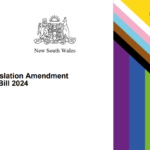Public’s Perception of Sentencing

How much confidence do we have in the criminal justice system as a whole?
If you read what is often published in the media after high-profile cases are finalised, it would be easy to believe that the courts are far too lenient, but is this really the case?
For many people, their main ideas about crime and justice come from what’s reported in the media, which routinely sensationalises and misrepresents events while downplaying or even ignoring important (yet undramatic) mitigating factors.
Perhaps consequently, there are often community complaints that sentences given to convicted criminals, especially for major crimes, are too lenient and below the level of penalty that the majority of the public would prefer.
A number of studies have been done in an attempt to understand how the public really feels about sentencing, and whether judges and magistrates are in tune with community expectations and standards.
These studies have shown some interesting results, and it would appear that although we might complain about the leniency of some sentences, in actual fact, public opinion isn’t too far off the opinion of judges and magistrates.
Why the difference?
A recent research paper published by the NSW Parliament suggests that while in the abstract and without any legal information, people may believe that sentencing is too lenient, once they are given more information and legal knowledge, their idea of appropriate punishment ends up being similar to the legal opinions of judges and magistrates.
In some cases, people even believe a more lenient punishment than would be handed down by a judge or magistrate is appropriate.
One of the key problems with public perceptions of sentencing is believed to be due to distortion by the media in reporting trials and criminal cases.
The media focuses on high-profile court cases and extreme crimes, which don’t give an accurate picture of the way the courts work on an everyday level.
There is also a tendency to misreport and misrepresent key facts and sensationalise the outcome to get attention from readers.
Lack of understanding as to the sentencing process and the different factors which have to be taken into consideration can also lead to a negative public perception around sentences which are judged to be too lenient.
Many major courts are trying to overcome these challenges by creating audio recordings of sentences and making them available for members of the public to listen to so they can better understand why a particular sentence was given.
This idea is backed up by the NSW Parliament research paper which shows that through previous studies, once members of the public gain a more in-depth understanding of the legal processes involved in sentencing, they are likely to be less punitive and themselves suggest more lenient sentences which are more in line with the courts.
Members of the public who get all their information about sentencing from the media have been shown to favour harsher sentences than those who get their information from academic websites and publications, and from the courts.
Does the public want all criminals to go to prison?
Another interesting result from the research paper showed that in reality, the public generally favours rehabilitative measures over punitive ones, especially for juvenile offenders.
Even those who had themselves been victims of crime previously didn’t show any higher levels of punitiveness than those who hadn’t.
Can negative public perceptions of sentencing lead to long-term issues?
If negative public perceptions of sentencing continue, they could potentially lead to a loss of confidence in the criminal justice system.
Strong public opinion can drive changes in legislation, which can potentially take sentencing power away from the courts and place it in the hands of the police or other bodies.
As the justice system in Australia is based on the courts having the power of sentencing, a move away from this to put sentencing power in other hands could undermine the whole process and lead to far wider issues in the long term.
Although many members of the public may not be inclined to read through court documents or research legal processes through academic publications, better media reporting of high-profile cases and more information provided about mitigating factors and how sentencing outcomes are decided could help to change public perceptions about sentencing.






